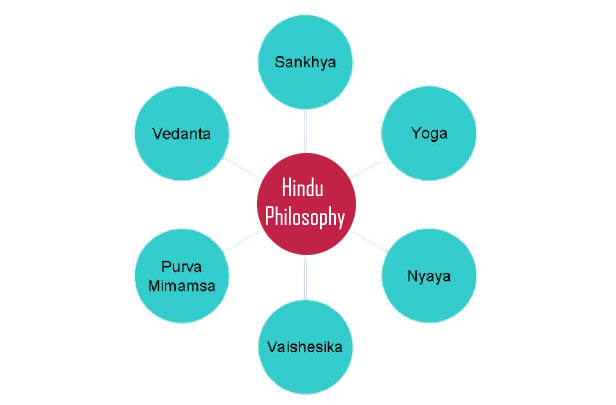Six Systems of Hindu Philosophy
The words “Hindu philosophy” is vague. It is a tradition of ancient philosophical thoughts. The irony of Hindu philosophical thinking is there is no single and common philosophical doctrines shared by all Hindus. Most of the Hindus share various forms of philosophical views that are contradictory to one another. This philosophy is defined as the collection of the various philosophical views that have a various textual connection to the certain core Hindu religious text mainly to the Vedas. Furthermore, they do not identify the “Hindu philosophy” with a single and particular comprehensive philosophical doctrine.
Hindu Philosophy: the Darsanas
Most of the systematic Hindu philosophies are articulated from the ancient texts of Vedas. Nevertheless, the Hindu philosophies do not import all the philosophies from the Vedas alone. This is because Vedas do not have systematic treaties on philosophical issues. Various issues remain untouched in the Hindu philosophy. Furthermore, the core canonical texts of this philosophy are not canonical to all the Hindus around the globe.
Nyāya
Vaiśeṣika
Sāṅkhya
Yoga
Pūrvamīmāṃsā
Vedānta
1.Nyāya
The word “nyāya” refers to formal reasoning. Likewise, In modern times it mainly refers to the reasoning capacity in the layman terms. However, not everyone is favored to the Nyaya philosophy, those who do not favor Nyaya they tend to reduce its status to an arm of thoughts given to the logic and rhetoric. The reasoning is the core component of the school of Nyaya. Likewise, it is also an important component on the topic of epistemology, religion, and metaphysics. Thus, due to its wide array of knowledge, it is often called the autonomous school of the Hindu philosophy.
2. Vaiśeṣika
The origin of the Vaisesika—an ancient Hindu philosophy dates back to the 1st cent C.E. The name translates to the “atom-eater.” There are different anecdotes attached to the name of Vaiśeṣika, the 1st one is considered due to the ontological atomism of the philosophy of (Vaiśeṣika Sūtra VII.1.8), or due to the constraint of the diet grains picked from the field. The Vaisesika philosophy of Hinduism can be categorized with the philosophic questions.
3. Sāṅkhya
The Sankhya philosophy is considered one of the oldest Hindu Philosophy out of the six systems of Hindu Philosophical view. Sankhya is clearly illustrated in the Bhagavad-Gita as well as in the Upanishads. Kapila, an ancient sage founded the Sankhya philosophy. The Sankhya system is considered a much liberal system of philosophy as the system nullifies the Nyaya-Vaisesika system as incomplete instruments to illustrate the universe. Likewise, it is said that Sankhya substituted the evolution for creation.
4. Yoga belongs to Hindu Philosophy
Yoga is a popular term in Hindu philosophy. The term has been widely used in the ancient Bhagavad-Gita to denote the union of the soul with the ultimate power i.e the Supreme soul. Notwithstanding the Bhagavad-Gita, Patanjali describes Yoga as the ways to get perfection by controlling the physical, mental and spiritual things on the human.
5. Pūrvamīmāṃsā
Purvamimamsa is also called the philosophy of the exposition. The main purpose of Purvamimamsa is to show the authenticity of the Hindu Philosophy systematically through different teachings like Vedas. Purva Mimamsa clearly states that the soul the ultimate energy is distinct from the body and the astral body too. It goes on to say that the liberation of the soul is possible by religiously following the rites and ceremonies described in the ancient Vedas.
6. Vedānta
Vedānta is also called the Uttar Mimansa. It is considered the most important schools of Philosophy of Hinduism. The Vedanta school of Hindu philosophy considered that the Vedanta is the most important philosophy because it contributed to the intellectual part of the Hinduism. The important text of Vedanta is considered as Badarayana, which was scribbled in the early Christian era. Vedanta is also called the ultimate goal of the Vedas.

